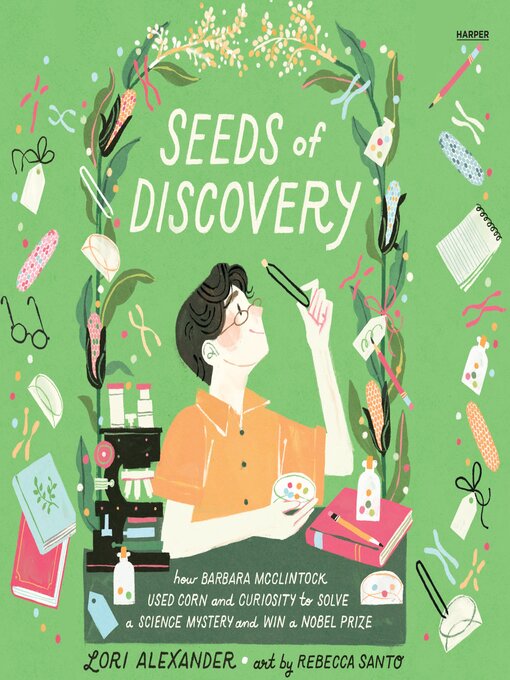The quirky and singular Nobel Prize winner Barbara McClintock, a founder of modern genetics who did things her own way, is honored in this lively young STEM biography by Sibert Honor winner Lori Alexander.
Celebrating the power of curiosity and the rewards of tenacity, this engaging biography introduces young readers to the field of genetics. As a rare female botanist in early twentieth-century America, Barbara McClintock never let other people's notions of what was proper slow her down. When she faced doubting colleagues and unsupportive institutions, she drove across the United States, climbed through windows, and even slept in her laboratory to conduct her research. In so doing, she helped pave the way for future scientific discoveries that can cure diseases and save lives—and won a Nobel Prize in the process!
Supplemental enhancement PDF accompanies the audiobook.




